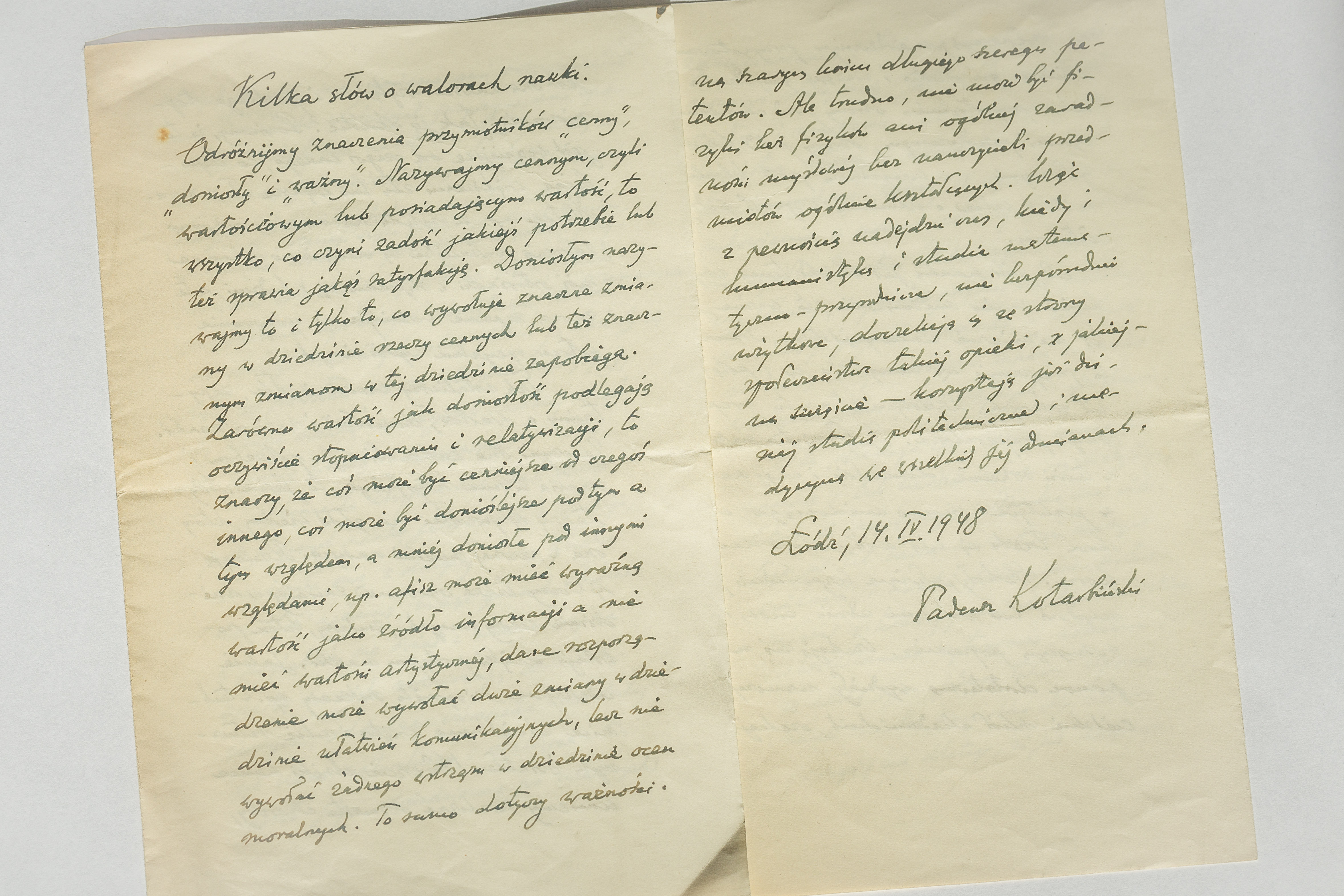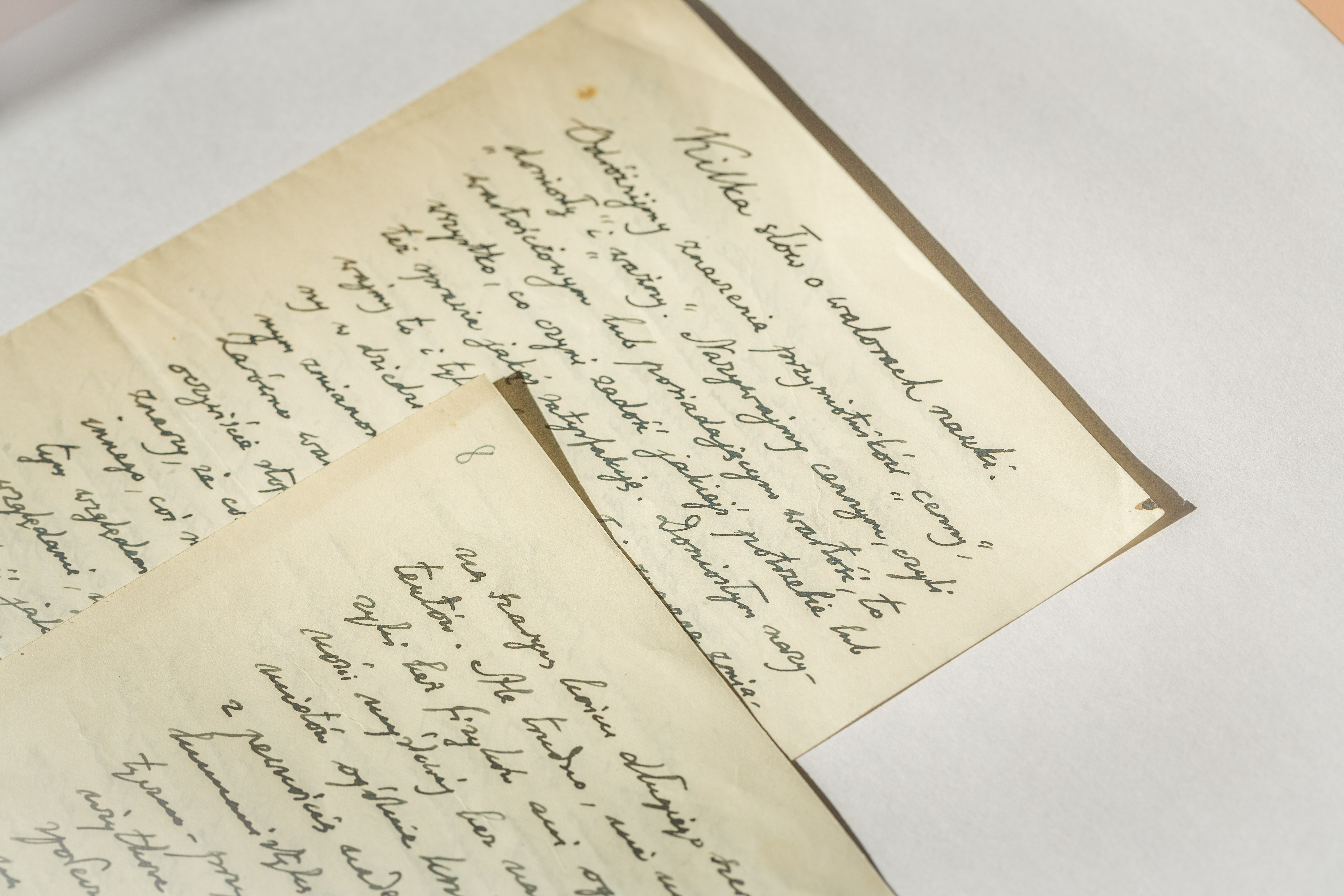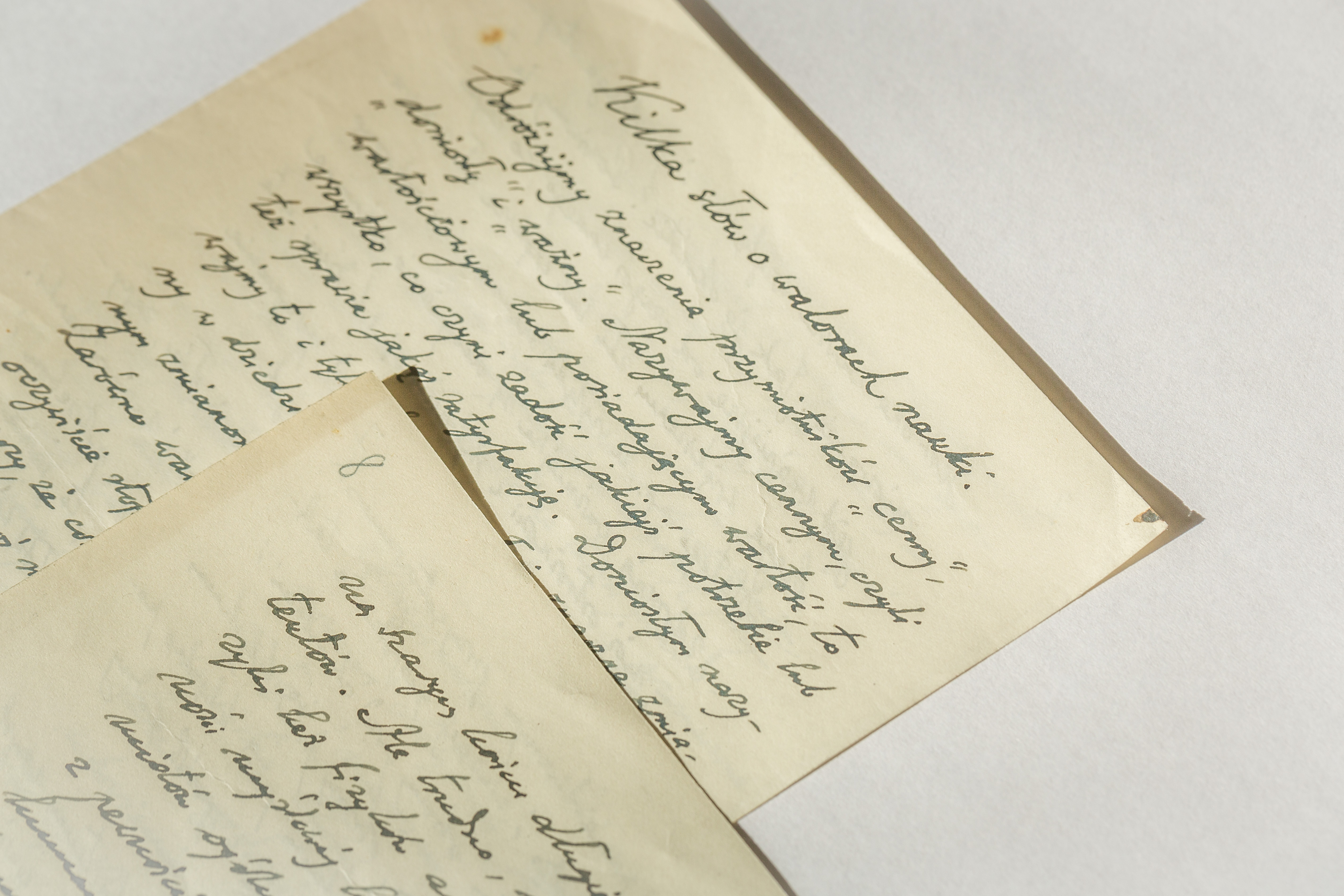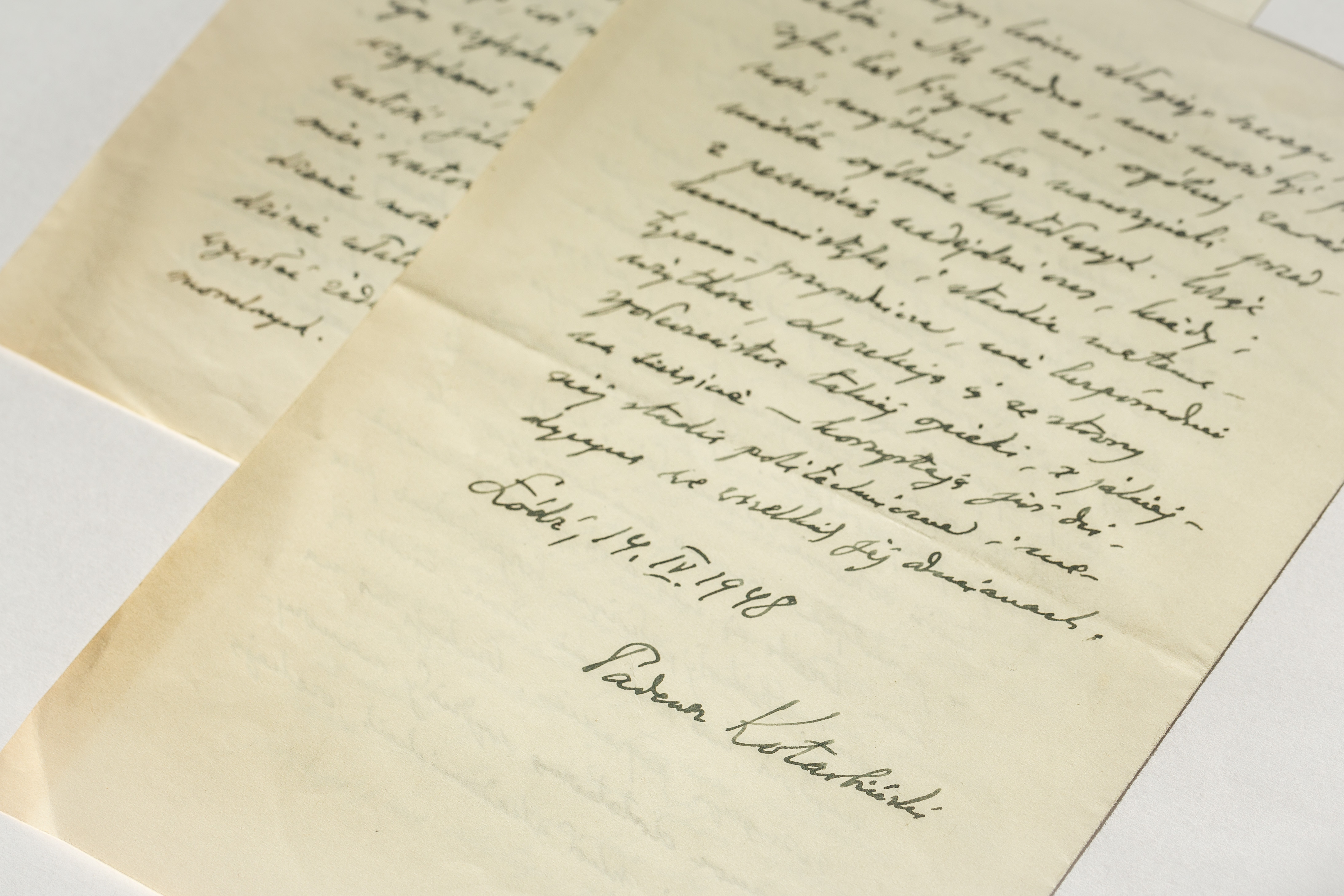"A NOTE ON THE VALUE OF SCIENCE"
- University of Lodz
- "A NOTE ON THE VALUE OF SCIENCE"
Tadeusz Kotarbiński: philosopher, teacher, the first rector of the University of Lodz
Tadeusz Kotarbiński was a philosopher, an alumnus of the University of Lviv, a pupil of the eminent scholar and brilliant teacher Kazimierz Twardowski. His career as an academic lecturer was associated with the University of Warsaw, where he was active before and during the war in secret university lectures.
Professor Kotarbiński's scientific interests were focused on various philosophical issues, especially the problems of logic, praxeology and ethics. As a university lecturer, he was an outstanding teacher who knew how to get his students familiar the secrets of logical and philosophical knowledge.
In defence of University values
The 1940s were the years of rebuilding Poland after the devastation of the war, but also a time of serious internal conflicts, as a significant part of the society did not accept the new system, which was a system increasingly alien to the democratic one.
At the universities, too, there was a struggle to maintain autonomy and independence from Marxist ideology. At the newly established University of Lodz, the Rector – Professor Tadeusz Kotarbiński, who was supported by a significant number of professors and opposition-minded students, was at the forefront of this resistance. They fought for the preservation of traditional academic freedoms, as well as for not succumbing to the pressures of ideology. Professor Kotarbiński was a declared freethinker. He wanted not only to resist the dogmatic Marxism introduced at that time, but also to resist the pressure of the Catholic Church.
Veritas et libertas (truth and freedom)
As a Rector, Prof. Tadeusz Kotarbiński defended not only the autonomy of the university, but also the young people, who in many cases were the subject of political repression. It was therefore natural for him to work closely with the students and student organisations as a mentor and an educator.
At the University of Lodz, Student Science Club of Lawyers and Economists was the centre of student resistance. Members of the club initiated a fundraiser for a university banner in 1946. They suggested the slogan 'Truth and Freedom' should be written on it. These words were taken from a speech by Professor Tadeusz Kotarbiński, during which he said:
"Truth and Freedom – these are the university's flagship slogans".
The gift, donated by the students, was presented to the Rector by a delegation from the self-help organisation Bratnia Pomoc. The ceremony took place on 14 March 1948. On its occasion, Bratnia Pomoc published an issue,"Three Years of Work", which included Professor Kotarbiński’s article on the value, relevance and significance of science.
The significance of science lies not so much in satisfying curiosity
and fine-tuning intellects; nor does it lie in its affinity with art
in shaping refinement to the effect that both are frequently
mentioned in the same breath, though not directly comparable
in repute. The significance of science lies in being the essential
and indispensable grooming of the resourceful household and the
technology at its disposal, providing the protection against illness
and premature demise, and the defense against social threats,
in particular against the failure to lead an honourable existence
In the article, Prof. Kotarbiński talks about science, its value and importance both in practical terms (engineering, medicine) and the cognitive importance of educating human minds. While valuing the role of science in influencing economic and social well-being, Professor Kotarbiński also points to the importance of sciences such as the humanities and natural sciences. These disciplines have a significant impact on intellectual preparation and introduction to culture. He recognises that seeing science only from the perspective of instrumental benefits seems to put these disciplines somewhat in the background as having less immediate effects.
Manuscript of the article "a note on the value of science"
University of Lodz received the original manuscript of the aforementioned article in 2020. It was written on the occasion of the founding the University of Lodz banner in 1948 and the creation of the university's motto. The contributor to the document is the well-known economist Prof. Antoni Rajkiewicz from Warsaw, who was a student at the University of Lodz when Prof. Kotarbiński's article was written. After almost 75 years, Prof Rajkiewicz did not forget his home university and handed over this extremely valuable text to Prof Elżbieta Żądzińska, Rector of the University of Lodz.
The memorial prize of the first rector of the University of Lodz professor Tadeusz Kotarbiński for an outstanding piece of work in the field of humanities
Prof. Tadeusz Kotarbiński played a huge role not only in the first years of the existence of the University of Lodz. He set the direction for the development of the university, shaped a model of scientific work that for the next decades will be a point of reference for the entire academic community of our University.
Continuing Professor Kotarbiński's humanistic reflection, in 2015, on the occasion of 70th anniversary of the university, the Memorial Prize of the First Rector of the University of Lodz Professor Tadeusz Kotarbiński for outstanding piece of work in the field of humanities was established uni.lodz.pl/en/tadeusz-kotarbinski-memorial-prize
The award is a nationwide distinction that has gained a great reputation among Polish scientists. The competition makes it possible to show the value and diversity of works in the field of humanities created in Poland to a wider audience.
Source: Prof. Ryszard Kleszcz, Member of the Competition Jury, Faculty of Philosophy and History of the University of Lodz; Paweł Spodenkiewicz, University of Lodz Library
Edit: Communications and PR Centre, University of Lodz




